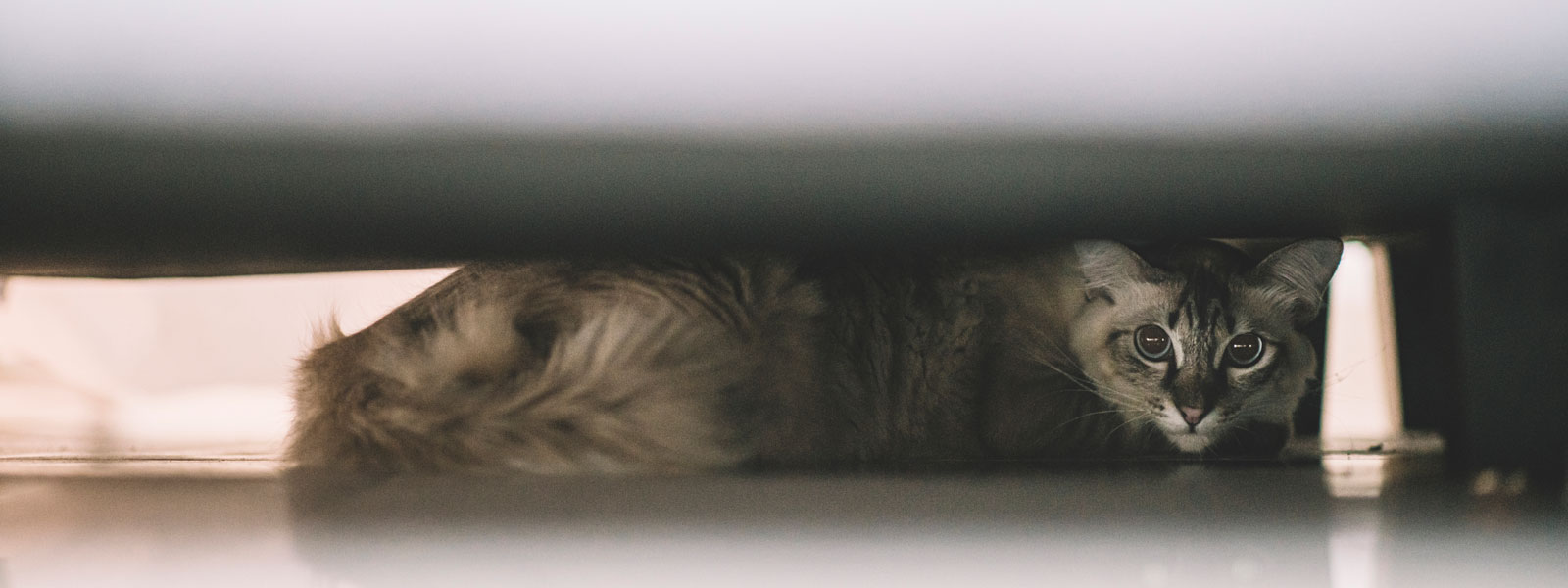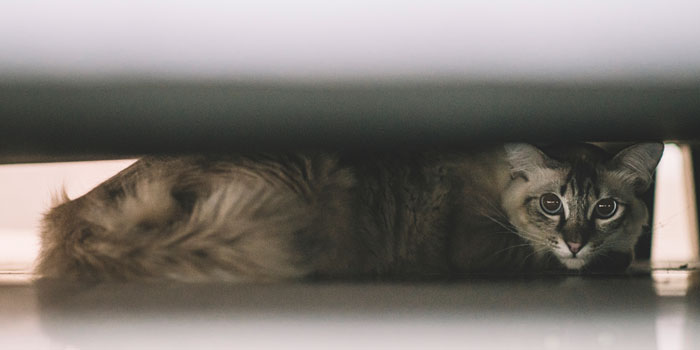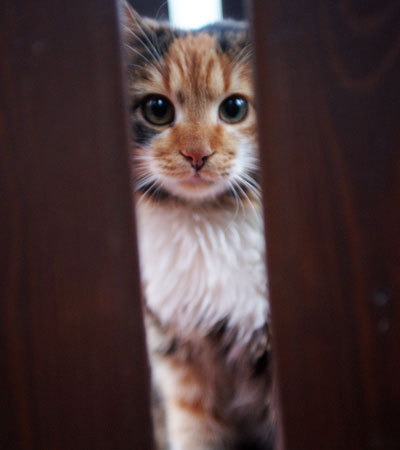What are possible triggers for anxiety in cats?
- Changes in life circumstances
- Trauma or high stress stimuli
- Lack of socialisation and genetics
Changes in living conditions can cause anxiety in cats. Moving house, the arrival of a new pet or another person, an addition to the family and even a change in a cat's daily routine can cause anxiety and stress.
Cats can be traumatised by drastic experiences such as accidents, fights with other cats, pain and the resulting unpleasant treatments at the vet, as well as sudden and long separations from their owners. These experiences can trigger deep fears and cause the cat to fear certain situations or stimuli.
Inadequate socialisation in the early stages of life can also lead to cats being anxious. If a young cat has not had enough positive experiences with different people, animals and environments, they can generally be anxious and unsure of new situations. A cat's genetic predisposition may also favour anxiety.If the cat's parents were very anxious, there is a chance that the cat itself will become more anxious.
It is important to note that these are just some of the most common triggers and that cats are individuals who react differently to situations.
Exceptional situation – New Year's Eve as an anxiety trigger
New Year's Eve can trigger anxiety in cats:
- Noise
- Bright lights
- Unknown odours
- Tense or hectic mood
- Negative experiences with loud noises
Sudden bangs, loud fireworks and bright flashes of light can overstimulate cats and cause stress and anxiety. Many cats react to these situations by hiding, trembling, behaving restlessly or defensively. It is important to take special precautions during this time to minimise the cat's anxiety, such as setting up a quiet room where it can feel safe. You also should not leave your cat alone and should offer it extra attention and support if it wants it. Not all cats get as anxious on New Year's Eve. Some cats are less sensitive and may show no signs of anxiety, while others can get highly stressed.
How can I help my cat to overcome its fear?
There are various ways to help an anxious cat:
- Create a quiet, safe environment and sufficient spaces for retreat, such as cavities or raised areas
- Bring routine and structure to your cat's daily routine
- Train courageous behaviour using positive reinforcement
- Introduce new people or animals slowly and carefully into your cat's life and give them enough time and space to adapt to new situations
- Consult your vet if your cat suffers from long-term and severe anxiety
Does my cat need tranquillisers?
If a cat suffers from very severe anxiety, it may be helpful to consider administering tranquillisers (now and again). Tranquillisers can be helpful in some cases to reduce anxiety and provide relief in exceptional situations, such as New Year's Eve. There are different types of tranquillisers, including prescription drugs and natural remedies. The decision as to whether your cat needs tranquillisers should always be made in consultation with a vet. They can assess the degree of anxiety and determine whether tranquillisers are required.
It is important to note that tranquillisers are not a long-term solution and should only be considered as part of a comprehensive approach to anxiety management. Other measures such as behaviour modification, environmental adaptations and training may also be necessary to reduce your cat's anxiety in the long term.








The information below is required for social login
Sign In
Create New Account